82 F. high in the Twin Cities Monday.
79 F. average high on August 22 (drop of 4 degrees since mid-July).
79 F. high on August 22, 2015.
August 23, 1955: Hail in Houston County results in drifts up to a foot deep at Rushmore.
A Fire-hose of Data - But So Little Weather Wisdom
"Life
is very complicated, so don’t try to find out answers. Because when you
find answers life changes the questions" wrote Tina Dima.
So many
choices - no wonder we're all neurotic. Life seemed simpler back in the
60s and 70s: a handful of TV stations and the local newspaper. One
weather model. Today? A blizzard of facts, factoids and digital garbage -
endless sources of "information", much of it dubious, and now hundreds
of weather models. I remind my two boys to focus on "trusted sources",
because the Internet is one rough neighborhood.
When the
public gets conflicting severe storm warning information they are more
likely sit on their hands and do nothing. Not good. A few models bring a
tropical storm or hurricane into Florida & the eastern Gulf of
Mexico late next week. I'm still skeptical, but stay tuned and let's see if there's model continuity in the coming days.
A couple T-storms flare up
tonight and early
Wednesday
ahead of the next cool front. The approach of warmer, juicier air sets
off more T-storms next weekend. Not a steady downpour but have a Plan B.
I have shocking news: I don't see any 90s, no hot fronts, at this year's Minnesota State Fair. How is that even possible?
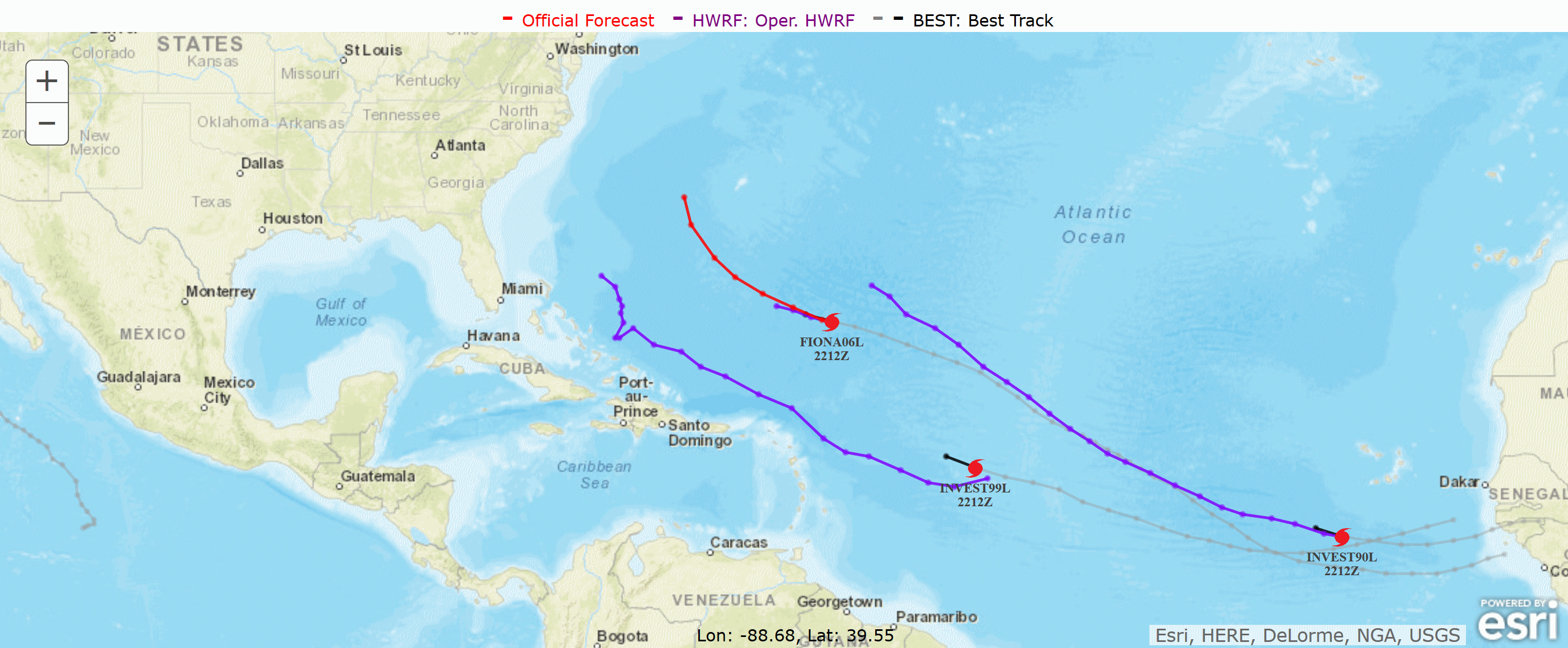 Heating Up in the Tropics
Heating Up in the Tropics.
We're tracking at least 3 tropical systems in the Atlantic (Fiona and
Gaston); Invest-99 has the greatest potential to impact the Bahamas and
possibly the southeastern USA sometime next week. Graphic: NOAA.
Projected Track.
Models are in fairly good agreement that Invest-99 will track toward
the west northwest, strengthening over time. Confidence levels are still
quite low.
Hermine? It's
still very (very) early to be launching into hurricane-speak and
analyzing tracks, but the fact that the ECMWF (Euro) picked up on
tropical development during Monday's 12z run was a big data point for
me. NOAA's GFS model has been trying to spin something up in recent
days; now the European model, which often does a somewhat better job
tracking tropical systems, is looking interesting for next week.
Forecast map valid next Thursday morning, September 1, courtesy of WSI.
Remember, it's a forecast, not reality. Not yet. In the event sustained winds top 39 mph we'll have Tropical Storm Hermine.
Feels
Like Summer. Models show mid to upper 80s today; a 90-degree high
temperature not out of the question close to home by late afternoon as
south wind gust to 25 mph. Source: Aeris Enterprise.
A
Few Hours of Showers. NOAA's 4km NAM brings a line of T-storms across
the state later tonight, a squall line forming along the leading edge of
cooler, drier air. By Thursday you'll notice another touch of autumn in
the air. 60-hour Future Radar: NOAA and AerisWeather.
ECMWF Temperature Guidance.
The European may be running a few degrees too cool, but it probably has
the right idea: Thursday is the coolest day - temperatures Friday
morning will start out in the 40s to low 50s before recovering again
next week. NOAA models are warmer for the weekend, hinting at low 80s by
Sunday. Graphic: WeatherBell.
When In Doubt Predict Rain.
Rainfall amounts with tonight's cool frontal passage should be light,
under .10 or .20", but the approach of warmer air coupled with a storm
aloft may squeeze out significant rains Saturday night into Sunday,
based on NOAA guidance. Good grief.
Wimmers and Velden
launched the first MIMIC-TPW algorithm
in 2007 and it has been an integral tool for tropical weather analysis
ever since. Still, there was room for improvement, particularly to
better serve coastal forecasters.
Some polar-orbiting satellites
scan the Earth and collect data in a conical pattern, so while they are
constantly changing position all over the globe, their retrievals are
generated from the same scan angle. This allows them to take very
precise measurements and stay well calibrated with other conical
scanners, Wimmers explains, but it constrains TPW data collection to
uniform surfaces like oceans. Land was simply too uneven, especially in
locations with varied topography.
- See more at: http://news.wisc.edu/a-better-way-to-predict-the-weather-on-sea-and-over-land/#sthash.eKs54QpM.dpuf
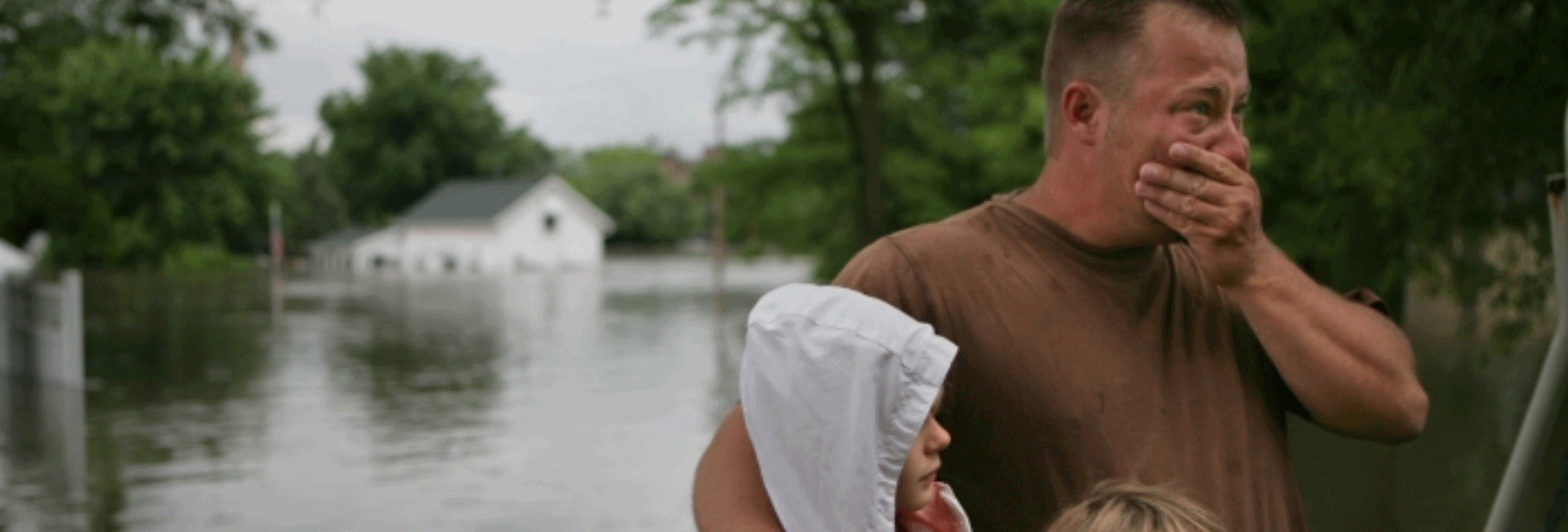 Why Obama Must Pay Attention to the Louisiana Floods
Why Obama Must Pay Attention to the Louisiana Floods. Here's an excerpt of an Op-Ed from Eric Holthaus at
Newsweek: "...
Words
matter. And since Obama has staked a big part of his legacy on climate
change, he owes it to the victims of the flooding in Louisiana, and the
potential victims of future climate-related disasters, to address the
clear and present threat of climate change directly in Louisiana. The
President not only has the ability to improve the lives of the victims
of this tragedy, by motivating attention and donations to help their
plight, but to save countless future lives as well. To intentionally
avoid this responsibility is unforgivable. To be a true leader, you have
to change the status quo; when you're trying to lead on climate you
have to change the status quo much faster than "normal" politics might say is possible..." (Photo: American Red Cross).
Governor of Louisiana: "We Really Need Help". The Guardian reports: "
Louisiana
governor John Bel Edwards pleaded for aid for his state on Sunday,
saying that after a week of devastating flooding, “we really need help.”
Unlike a hurricane, Edwards told CNN on Sunday, “this rain event
didn’t have a name, so we have folks around the country who I think are
just now realizing how significant it was.” Days of extraordinary
rainfall caused severe flooding
around southern Louisiana this week, killing at least 13 people,
damaging an estimated 60,000 homes and forcing thousands to the shelter
of evacuation centers..."
Photo credit: "
Daniel Stover, 17, wipes his head as he helps rescue people’s belongings in Sorrento, Louisiana, on Saturday." Photograph: Max Becherer/AP.
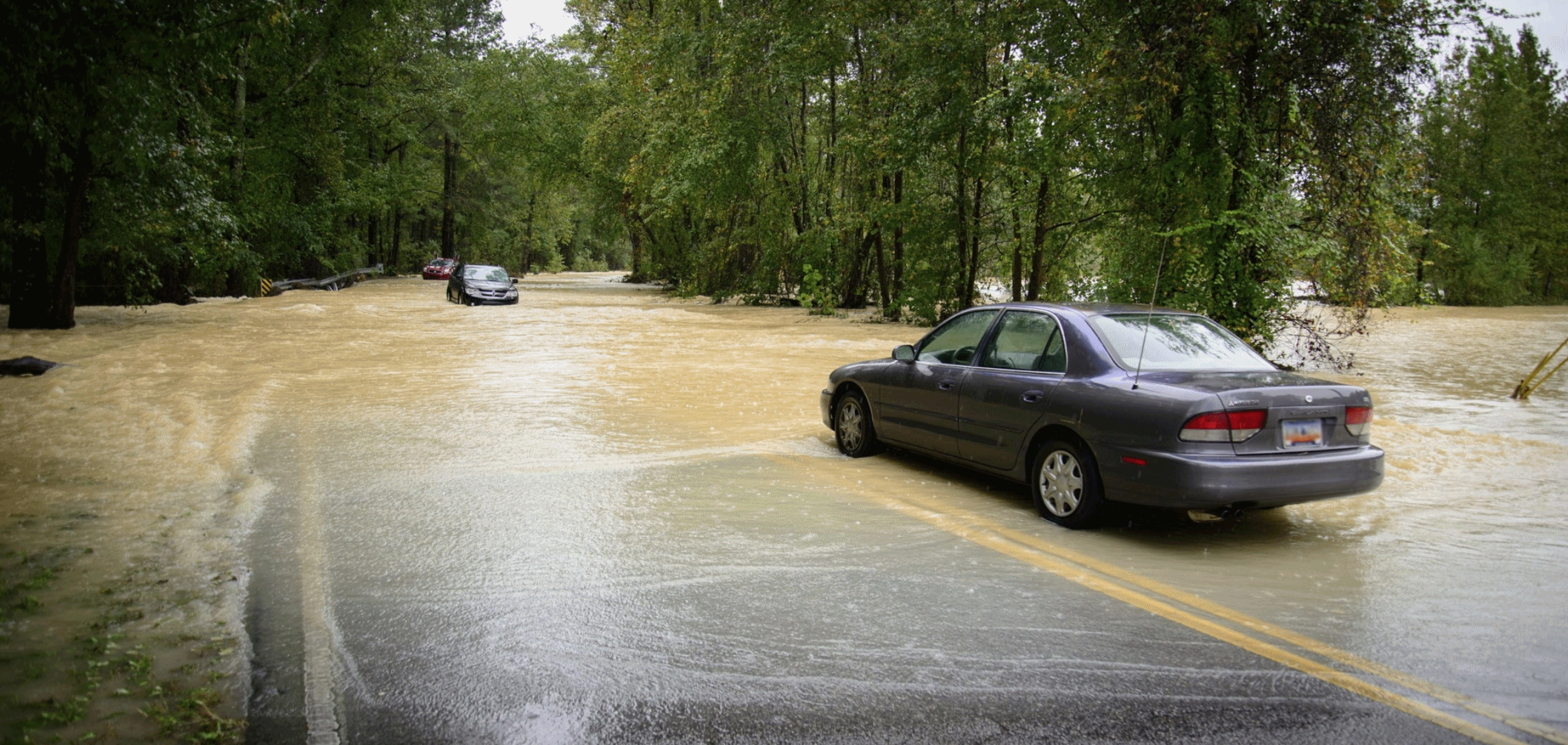 Louisiana Ignored Dire Forecasts and Flash Flood Warnings
Louisiana Ignored Dire Forecasts and Flash Flood Warnings.
The fact that this epic storm didn't have a name, it wasn't a tropical
storm or hurricane, helped to downplay overall consumer awareness of
what was coming. Here's an excerpt of an interview at
NPR:
SHEPHERD: People have a hard time grasping things that they haven't experienced.
KAILATH:
According to the research Shepherd cites, people around the world are
going to see more and more weather for which they have no reference
point.
SHEPHERD: People just assume a heavy rainstorm is a
heavy rainstorm, just like the storms they experienced growing up as a
child or perhaps 10 years ago.
KAILATH: But in fact,
Shepherd says, today's storms are different - more destructive and only
getting stronger. Inland communities like Baton Rouge haven't
experienced floods like this before, but increasingly, they'll have to
learn to prepare for them anyway. Ultimately, Shepherd says, the
responsibility for getting ahead of a disaster is personal..." (File photo: NOAA).
Louisiana Residents Without Flood Insurance Face Uncertainty.
Reuters reports: "...
As
efforts in Louisiana turn from rescue to recovery, renters and
homeowners who do not have flood insurance are facing an uncertain
financial future. Private insurers do not
cover flood damage and flood insurance in the United States is
underwritten by the Federal Emergency Management Agency. Homeowners who
live in designated high-risk flood zones are required to carry flood
insurance if they have a federally backed mortgage.
In Louisiana, an estimated 42 percent of homes in high-risk areas have
flood insurance, according to FEMA. Only 12.5 percent of homeowners in
low and moderate-risk zones do..."
Photo credit: "
Debris is seen floating in flood water in front of a damaged home in St. Amant, Louisiana, U.S., August 21, 2016."
REUTERS/Jonathan Bachman.
These Louisiana Politicians Are Demanding Flood Aid, But Voted Against Sandy Relief. Here's an excerpt of a column at The Los Angeles Times: "Call
it logrolling or one hand washing the other, a generally recognized
fact in Washington is that if you want something for your district, it
pays to agree to the same thing for another guy’s district. That point
may have been lost on three Louisiana Congressmen when they voted
against a $50.5-billion relief package for the victims of Superstorm
Sandy. The 2012 storm ravaged coastal communities in New Jersey and New
York. Now they’re in the position of needing the same sort of aid for
their own state. How will that play out?..."
Photo credit: "
Voted against Sandy aid, wants Louisiana aid: Rep. Steve Scalise, R-La. (center)" AP
Parachuting into Forest Fires for $15 an Hour. Good grief, talk about underpaid. Here's an excerpt from
CNN: "
Smokejumpers
are elite firefighters who parachute out of airplanes and into fiery
forests -- extremely dangerous work that pays just $15 an hour. That's
what the U.S. Forest Service and the Bureau of Land Management pay them
to drop into the smoke-choked Western mountains and wild lands.
Smokejumpers haul 100-pound packs of equipment and dig trenches,
or fire lines, using a pick-axe called the Pulaski, which looks like a
Medieval weapon. The fire lines are basically trenches cleared of any
flammable vegetation used to stop the blaze from spreading..." (File photo: NOAA).
A Better Way to Predict the Weather On Sea and Over Land. Here's a summary of some promising new tools for severe weather prediction, courtesy of the
University of Wisconsin News: "...
Wimmers
and Velden launched the first MIMIC-TPW algorithm in 2007 and it has
been an integral tool for tropical weather analysis every since. Still,
there was room for improvement, particularly to better serve coastal
forecasters. Somme polar-orbiting satellies scan the Earth and collect
data in a conical pattern, so while they are constantly changing
position all over the globe, their retrievals are generated from the
same scan angle. This allows them to take very precise measurements and
stay well calibrated with other conical scanners, Wimmers explains, but
it constrains TPW data collection to uniform surfaces like oceans..."
Tracking Changes in Great Lakes Temperature and Ice: New Approaches. Here's an excerpt from
NOAA's Great Lakes Environmental Research Laboratory: "
In
a new study, scientists from GLERL, the University of Michigan, and
other institutions take a new look at changing ice cover and surface
water temperature in the Great Lakes. The paper,
set to be published in Climatic Change, is novel in two ways. While
previous research focused on changes in ice cover and temperature for
each lake as a whole, this study reveals how different regions of the
lakes are changing at different rates. While many scientists agree that,
over the long term, climate change will reduce ice cover in the Great
Lakes, this paper shows that changes in ice cover since the 1970s may
have been dominated by an abrupt decline in the late 1990s (coinciding
with the strong 1997-1998 winter El Niño), rather than gradually
declining over the whole period..."
Map credit: "
The
panel on the left shows the change in seasonal ice cover duration
(d/yr) from 1973 to 2013, and the panel on the right shows the change in
summer surface water temperature (°C/yr) from 1994 to 2013." Maps created by Kaye LaFond for NOAA GLERL.
Ocean Slime Spreading Quickly Across the Earth. Other than that things are going quite well. Here's an excerpt from National Geographic: "...
The
algae bloom that blanketed the West Coast in 2015 was the most toxic
one ever recorded in that region. But from the fjords of South America
to the waters of the Arabian Sea, harmful blooms, perhaps accelerated by
ocean warming and other shifts linked to climate change, are wreaking more havoc on ocean life and people. And many scientists project they will get worse. "What emerged from last year's event is just how little we really know about what these things can do," says Raphael Kudela, a toxic algae expert at the University of California, Santa Cruz..."
Image credit: "Some
scientists suspect melting Himalayan ice from climate change is
changing rain pattterns enough to help reduce oxygen in the Arabian Sea,
leading to massive green blooms of Notiluca scintillans, a harmful
algae that is threatening to transform the region's marine food web." Image: NASA Earth Observatory.
This Land Is My Land (And Yours Too!) Nicholas Kristof of the
New York Times
waxes eloquent about our National Parks, which turn 100 years old this
week (and are showing their age just a bit). Here's an excerpt: "...
But
the biggest threat to our long-term wilderness enjoyment isn’t
mosquitoes or ticks, bears or wolves. It’s Congress. Congress deprives
government agencies of money needed to maintain our public lands. The
National Park Service says that it has 6,700 miles of trails that are in
poor condition because it can’t afford to keep them up. Even on the
John Muir Trail, large stretches are in disrepair and had turned into
creeks of snowmelt when my daughter and I hiked them. This quickly
erodes the trails so much that new ones have to be built nearby. This
reluctance to pay for maintenance isn’t even fiscally prudent, for it’s
far more expensive to build new trails than to maintain old ones..."
Photo credit: "
Nicholas Kristof enjoying part of his inheritance (as an American citizen), a lake on the John Muir Trail in California." Credit Caroline Kristof.
Obama Calls for Action on Climate Change to Protect National Parks. Here's a video link and story excerpt at
TheHill: "...
As
we look ahead, the threat of climate change means that protecting our
public lands and waters is more important than ever," Obama said in his
weekly address. "Rising temperatures could mean no more glaciers in
Glacier National Park. No more Joshua Trees in Joshua Tree National
Park. Rising seas could destroy vital ecosystems in the Everglades, even
threaten Ellis Island and the Statue of Liberty." Obama said American's
should have "foresight and faith in our future" to do what it takes to
protect national parks and the planet "for generations to come..."
I Don't Need Air Conditioning and Neither Do You.
We tried going without A/C one summer and it was not a pretty sight.
It's an effective way to stop friends and neighbors from just dropping
in, though. Here's the intro to a
Washington Post story: "
It’s
time to come out of the closet. Or, more precisely, the sweat lodge. My
family lives without air conditioning, except for one antique,
semi-comatose window unit that “cools” the bedroom to approximately the
same temperature as Dallas at dusk. Our house in Philadelphia was built
in the 1920s, when people were tough and resourceful. For most of the
year, the house is cool and pleasant, as long as there isn’t a mash-up
of continuously scorching days and epic humidity, when the air is
putrid, stagnant and, if it were a color, would definitely be mustard.
Which would be this summer..."
Image credit: iStock, Washington Post.
Elon Musk Leads Tesla Effort to House Roofs Entirely Out of Solar Panels. "Solar shingles" is the operative phrase here, according to a story at
The Guardian: "
A new venture spearheaded by Elon Musk
will create house roofs made entirely of solar panels, in a sweeping
expansion of Tesla’s clean energy ambitions. Tesla has finalized a
$2.6bn deal to buy solar power company SolarCity to produce solar “shingles” – photovoltaic material that would be fashioned into the shape of a house roof.
“I think this is really a fundamental part of achieving differentiated
product strategy, where you have a beautiful roof,” Musk said. “It’s not
a thing on the roof. It is the roof...” (Photo credit
here).
Exxon Touts Clean Tech in Olympic Ads as Climate Pressure Grows.
Reuters reports: "...
Though
oil companies typically advertise at big sporting events, the ads are
being run as Exxon faces growing pressure on multiple fronts - from
shareholders, green groups and state attorney generals - to respond to
global warming. Many other fossil fuel
companies also face pressure from shareholders, specifically over
whether the value of their oil and gas assets would be slashed as
governments clamp down on carbon emissions.
From the opening ceremony of the Games on Aug. 5 to Aug. 17, Exxon
spent $19.3 million to air ads 233 times in the U.S. market, reaching
about 335 million TV screens, according to iSpot.tv, which tracks ad
viewership in real time using advanced analytics..."

America's First Offshore Wind Farm May Power Up a New Industry. Justin Gillis reports at
The New York Times: "...
By global standards, the Block Island Wind Farm
is a tiny project, just five turbines capable of powering about 17,000
homes. Yet many people are hoping its completion, with the final blade
bolted into place at the end of last week, will mark the start of a new
American industry, one that could eventually make a huge contribution to
reducing the nation’s climate-changing pollution. The idea of building
turbines offshore, where strong, steady wind could, in theory, generate
large amounts of power, has long been seen as a vital step toward a
future based on renewable energy. Yet even as European nations installed
thousands of the machines, American proposals ran into roadblocks,
including high costs, murky rules about the use of the seafloor, and
stiff opposition from people who did not want their ocean views marred
by machinery..."
Photo credit: "One
of five turbines that make up the Block Island Wind Farm, the first
offshore wind farm in the United States, off the Rhode Island coast." Credit Kayana Szymczak for The New York Times.
11 Reasons To Be Excited About The Future of Technology. Medium has an uplifting, optimistic preview of what's to come: "In the year 1820, a person could expect to live less than 35 years, 94% of the global population lived in extreme poverty,
and less that 20% of the population was literate. Today, human life
expectancy is over 70 years, less that 10% of the global population
lives in extreme poverty, and over 80% of people
are literate. These improvements are due mainly to advances in
technology, beginning in the industrial age and continuing today in the
information age. There are many exciting new technologies that will
continue to transform the world and improve human welfare. Here are
eleven of them..."
Are Aging and the Economic Slowdown Linked? The Washington Post reports: "An aging United States reduces the economy’s growth — big time. That’s the startling conclusion of a new academic study,
and if it withstands scholarly scrutiny, it could transform our
national political and economic debate. We’ve known for decades, of
course, that the retirement of the huge baby-boom generation
— coupled with low birthrates — would make the United States an older
society. Similarly, we’ve known that this would squeeze the federal
budget. Social Security and Medicare spending would grow rapidly,
intensifying pressures to cut other programs, raise taxes or accept
large budget deficits. All this has come to pass..."
MSP: 3rd Best (Large) Airport in the USA. So says
Trip Advisor and after spending time at airports around the world I agree that it's always good coming home to MSP: "...
Presented
for the first time this year, the awards highlight the most popular
domestic airports in four categories: shopping, dining, large airports
and medium airports (based on their size classification by the FAA).
Award winners were determined based on findings from a survey of more
than 114,000 TripAdvisor travelers from the U.S..."
 What Does a Dog Want More - "Good Boy" or Treats?
What Does a Dog Want More - "Good Boy" or Treats? My dog wants both. Here's a clip from
The Washington Post: "...
New research shows that my effort may be overkill. According to the study, published online
in the journal Social, Cognitive and Affective Neuroscience, more dogs
prefer praise over food. The finding by Emory University neuroscientist Gregory Berns followed a novel method of investigation: He used an MRI to scan a dog’s brain while the dog was awake and unrestrained..."

TODAY: Windy and warm - feels like July. Winds: S 15-25. High: 87
TUESDAY NIGHT: Sticky with a few T-storms around. Low: 67
WEDNESDAY: Early puddles, then clearing. Winds: W 10-15. High: 83
THURSDAY: Mix of clouds and sun, comfortable. Winds: NW 10-20. Wake-up: 60. High: 74
FRIDAY: Lukewarm sun, late thunder up north? Winds: SE 7-12. Wake-up: 56. High: 76
SATURDAY: Patchy clouds, few T-storms. Winds: S 8-13. Wake-up: 60. High: 78
SUNDAY: Unsettled, nagging thunder risk. Winds: SE 8-13. Wake-up: 65. High: 82
MONDAY: More numerous T-storms, some heavy? Winds: SE 8-13. Wake-up: 68. High: 81
Climate Stories...
Flooding, Extreme Weather and Record Temperatures: How Global Warming Puts It All Together. Here are 2 excepts from the blog of the
Union of Concerned Scientists:
Louisiana, August 2016: “I’m going home to see if I have a home”.
Ellicot City, Maryland, July 2016: “Oh my god. There’s people in the water”.
West Virginia, June 2016: “23 dead, thousands homeless after devastating flood”.
What
do these events (and 5 more since April 2015) have in common? They were
all considered very low probability, and the National Oceanic and
Atmospheric Administration’s Hydrometeorological Design Studies Center
created maps of annual exceedance probabilities
(AEPs) for all of them...One can’t help but notice that over these 15
months, 8 rain events were off the probability charts, so to speak. Yes,
climate change fingerprint is on these events, including the Louisiana flood, considered the worst natural disaster in the US since hurricane Sandy. Special conditions mainly fueled by climate change were behind this record event..."
Photo credit: "
Coast Guard photo by Petty Officer 1st Class Melissa Leake."
Historical Documents Reveal Arctic Sea Ice is Disappearing at Record Speed. Dana Nuccitelli reports at
The Guardian: "
Scientists
have pieced together historical records to reconstruct Arctic sea ice
extent over the past 125 years. The results are shown in the figure
(above). The red line, showing the extent at the end of the summer melt
season, is the most critical. Arctic sea ice extent in recent years is
by far the lowest it’s been, with about half of the historical coverage
gone, and the decline the fastest it’s been in recorded history..."
Graph credit: "
Time series of Arctic sea ice extent, 1850-2013, for March (blue line) and September (red line)." Illustration: Walsh et al. (2016)
Think It's Hot Now? Just Wait. Climate scientist Heidi Cullen connects the dots at
The New York Times: "
July
wasn’t just hot — it was the hottest month ever recorded, according to
NASA. And this year is likely to be the hottest year on record. Fourteen
of the 15 hottest years have occurred since 2000, as heat waves have
become more frequent, more intense and longer lasting. A study
in the journal Nature Climate Change last year found that three of
every four daily heat extremes can be tied to global warming. This map
provides a glimpse of our future if nothing is done to slow climate
change. By the end of the century, the number of 100-degree days will
skyrocket, making working or playing outdoors unbearable, and sometimes deadly..."
Young Conservatives to GOP on Climate: Hello? Are You Listening? Here's an excerpt from
MTV: "...
A Monmouth poll from December found that 75 percent of Americans aged 18 to 34 think the government should be doing more to prevent
climate change. On top of that, groups that cater to conservative
climate-caring types have been proliferating as Earth keeps breaking
temperature records. There is Meyaard-Schaap’s aforementioned Young Evangelicals for Climate Action, which tries to get politicians and faith leaders to think about climate change as a moral issue. There are Young Conservatives for Energy Reform and republicEN,
which advocate that being conscious of the environment is just
economically smart. They definitely aren’t in total agreement with the
more progressive and familiar environmental groups out there when it
comes to how to solve, or at least mitigate, climate change, favoring
free markets and local solutions with no regulations, but they are in
firm agreement on the science and the fact that they want their party to
acknowledge that this problem exists in the first place..."
"Next Year or the Year After, The Arctic Will Be Free of Ice". So says scientist and Arctic researcher Peter Wadhams at
The Guardian; here's an excerpt: "...
The
overall trend is a very strong downward one, however. Most people
expect this year will see a record low in the Arctic’s summer sea-ice
cover. Next year or the year after that, I think it will be free of ice
in summer and by that I mean the central Arctic will be ice-free. You
will be able to cross over the north pole by ship. There will still be
about a million square kilometres of ice in the Arctic in summer but it
will be packed into various nooks and crannies along the Northwest
Passage and along bits of the Canadian coastline. Ice-free means the
central basin of the Arctic will be ice-free and I think that that is
going to happen in summer 2017 or 2018..."
Photo credit: "
Peter
Wadhams in the Arctic in 2007: ‘We may able to raise the Thames barrier
in Britain but in Bangladesh, people will be drowned."


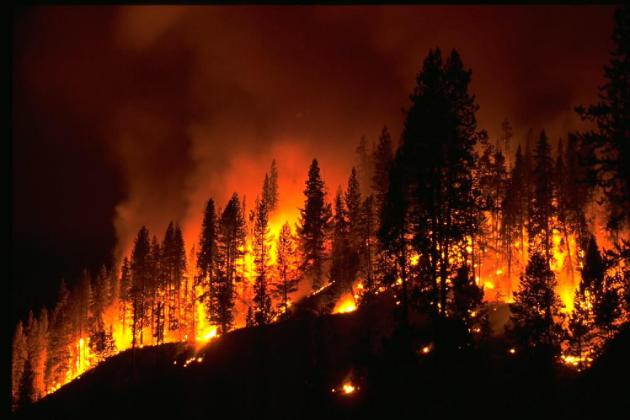
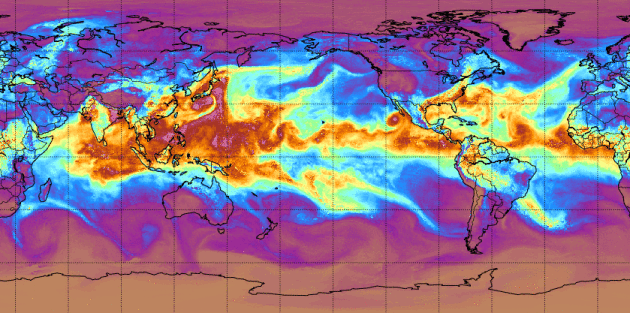


No comments:
Post a Comment